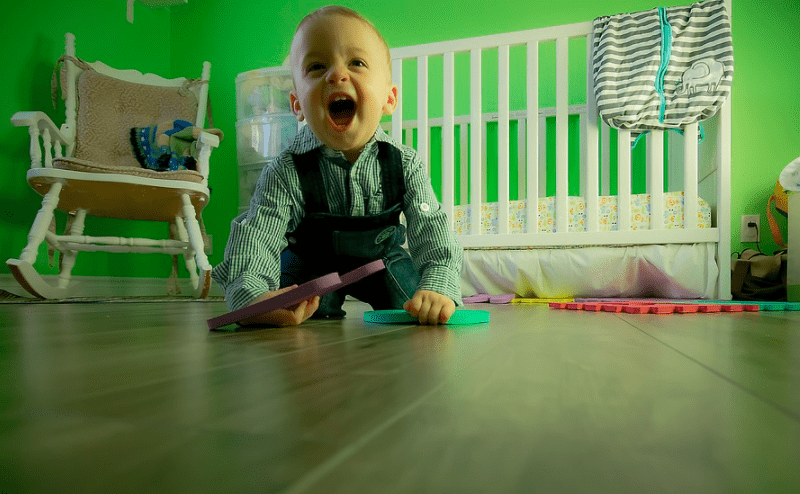Anyone who has ever had a toddler will tell you two things: those are some tough years, but they definitely come to an end eventually.
Toddlers are stubborn, they love pushing buttons, and if they’re in the right mood, they’ll delight in crapping on every single thing you suggest for hours on end.
Yes, they’re just asserting their independence, testing and pushing boundaries, but it’s frustrating. So, if there was a way to understand why they do what they do and turn it around so you hear less ‘no’ and more ‘yes,’ I definitely want in on it.

Photo Credit: Pixabay
“I see this toddler age which I have chosen to describe, the years from one to three, as a turbulent period of such trials and errors. In these years, each member of the family must make his or her own adjustments to the wide swings between ‘yes’ and ‘no,’ ‘me’ and ‘you,’ with which the child is faced. The child is constantly learning from the reactions of others how to tune his or her own behavior,” writes T. Berry Brazelton, a pediatrician and author.
Toddlers can walk and talk, and they’re using those new skills to figure out how they fit in the world. They’re developing around 700 new neural connections every second, and saying ‘no’ is often the simplest way to test boundaries and learn cause and effect.
How you respond to ‘NO’ is important, both in how your kid develops and whether or not compliance is in your future. First up? It has nothing to do with logic, because your toddler is nothing but a bundle of emotions.

Photo Credit: Pixabay
“The most important emotional accomplishment of the toddler years is reconciling the urge to become competent and self-reliant with the simultaneous and sometimes contradictory longing for parental love and protection,” writes psychiatrist and author Alicia F. Lieberman. “In order to explore and learn, they need reassurance that the parent will be there to keep them safe while they do things on their own.”
One caveat: as your child grows, an insistence on still saying no, despite being more aware of what is good for them and what is not, oppositional defiance disorder (ODD) could become a concern. A fairly common problem in children and teens, even more so in boys, has been linked to antisocial personality disorders later in life.
Doctors believe many biological, psychological, and social factors – like abuse, neglect, and parental substance abuse – could play a part. If you suspect your child’s love of saying ‘no’ no matter what goes beyond normal developmental limits, you should talk to your pediatrician or a therapist for direction.

Photo Credit: Pixabay
Absent any official diagnosis, though, there are some ways to get your toddler to embrace agreeing with authority at least some of the time.
First? Eliminate open-ended questions and endless options. Your kid’s brain can only process their own immediate needs, and they’ll pick whatever is easiest. Instead, offer them a choice between two or three options that all work for you.
This tactic makes your child feel as if they have some control over their lives, but eliminates the need to negotiate (and lose).
Second, tantrums. You don’t want to negotiate those, either, or your child will learn that it’s an effective way to get something they want. Instead, you can ignore the behavior (which works but can test the limits of your embarrassment), or you can try distraction – a silly song, a goofy dance, a good joke – that can earn giggles and a happy kid who wants to say ‘yes’ instead of ‘no.’

Photo Credit: Pixabay
A third option is picking the right words, which takes some practice. Research from the University of San Diego suggests that when parents ask children about helping, kids are more likely to pay attention when you use nouns instead of verbs.
For example, asking your child “to be a helper” instead of asking them “to help.” Psychologists think this is because it falls in line with a self-image young children like, which is the idea that they’re “big kids” who are able to help.
Dr. Lori Russell-Chapin explains further why this might be the best way to get the result you want.
“When parents see accomplishments or tasks completed, it is so important to say, ‘You must be very proud of yourself and.…’ This builds intrinsic locus of control rather than extrinsic or external reinforcements.”
Basically, when dealing with toddlers, a little understanding, calm, deft maneuvering, and a ton of patience is the only way to feel like you’re winning at least some of the daily battles.
And that’s really the most you can ask for most days.
